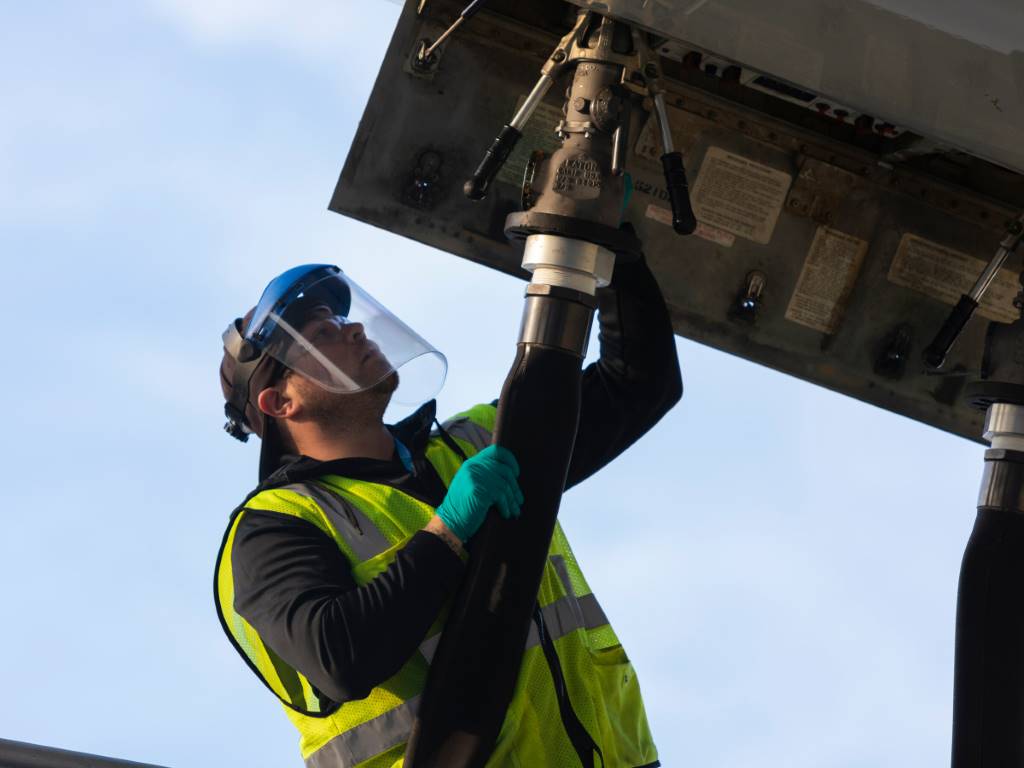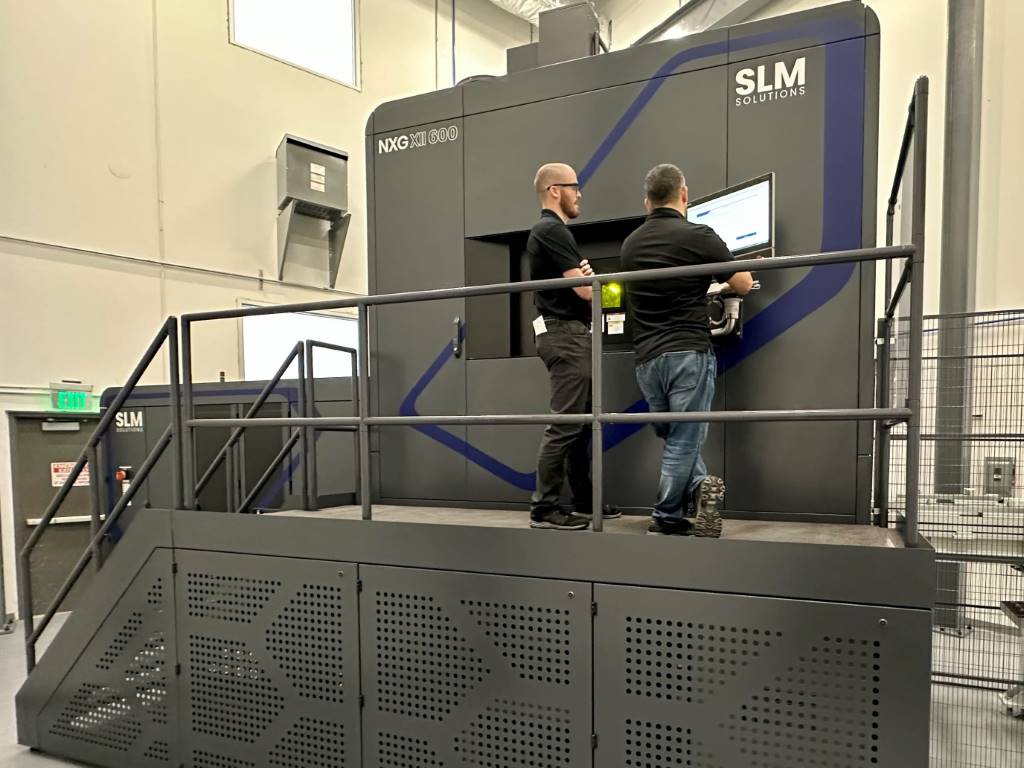Strength in numbers

For ten years the Nasmyth Group has been steadily growing and acquiring engineering companies to become a $100million turnover business.
Ed Hill learns how it has established itself in the competitive aerospace supply chain. The Nasmyth Group was founded in 2003 following an acquisition of two Nottingham, based engineering firms, Bulwell Precision Engineers and Metal Process Services under the guidance of group CEO Peter Smith.
Now the company consists of 15 engineering businesses employing 750 staff, including operations in India and the US. Its main capabilities comprise precision machining, complex assemblies and structures, surface treatment, sheet metal forming, gear production and electrical components. Around 60% of Nasmyth's work is involved in supplying the aerospace sector.
“Since the group was first formed there has been a focus on investing and developing new businesses and adding on new capabilities when they became available,” Simon Beech, divisional managing director comments. “As we have grown we have seen the need to add to our capability and achieve more market penetration.”
Nasmyth is involved in supplying both the civil and military aerospace markets to primes such as Boeing and Airbus as well as major engine manufacturers. It supplies components including airframe assemblies, engine parts and fuel systems amongst others.
The group is currently undergoing a restructuring exercise bringing its portfolio of companies under distinct capability divisions. The first to be unveiled is Nasmyth Technologies.
“Until now we have run the businesses individually to grow market share but as we have got larger we feel our customers are demanding that the business increases in scale so we are consolidating to operate under four main business streams,” Beech explains. “Nasmyth Technologies brings together the fabricating, forming and welding technologies into one integrated business.
“Our next milestone will be to bring together our three large precision machining companies. We then have the third strand which is our surface treatment businesses and the fourth strand will be our special products division where we have highly specialised capability in systems assembly producing parts for flight simulators for example.”
Cost options
With a long history working in the aerospace manufacturing supply chain, Beech is acutely aware of the pressures to find cost savings from the OEMs.
“As a result of the recession the primes are really concentrating on value down the supply chain. They are looking for more capability in general from their suppliers along with a global presence. They want us to give them cost downs through low cost sourcing but also offer new technology to give them solutions in terms of being able to do things faster and better. We offer the security of being a mid-sized company. The majority of our work is high up the supply chain. In many ways we have to operate like a prime in terms of assessing risk and managing large contracts across international boundaries.”
A stable financial base allows the group to evaluate the longer time scales often required by suppliers in the aerospace sector.
“We are privately owned group, so we are able to take a long term view over contracts rather than just chasing profits. That means we can make decisions that not only maximise the benefit for us but also maximise the benefit for our customers.”
As part of its drive to find lower cost sources for aerospace parts, Nasmyth has established a business in Bangalore, India. The company began supplying into the regions own aerospace and gas turbine industries. Now Nasmyth India, under guidance from its UK management, is becoming an increasingly important supplier into the global aerospace market.
“We saw India as an opportunity to establish a supply chain that could give us cost advantages. We now have around 12 subcontractors who we work with there. We partner them and also help to develop their capabilities and proficiencies to make sure we have multiple sources for all of our components.”
Beech continues: “One of our USPs is our ability to offer supply chain management to our customers who may wish to source products from India. This means a prime does not have to manage these cost-effective supply chains themselves. They can concentrate on what they are good at and leave the sourcing of these components to us. We have the expertise and the knowledge to guarantee the quality; we just have to ensure that we manage the commercial arrangements so everyone benefits.”
Securing skills
Nasmyth's Indian operations are growing rapidly with the amount of work anticipated to double in the next two years. However, the group is not neglecting its UK operations. Its companies are involved in the SC21 improvement programme and it will soon open a new skills academy to help training and apprenticeships across the whole group.
“We were a signatory to the original SC21 charter in 2006. We are also involved in the Sharing in Growth programme. This is an initiative from the Department of Business, Innovation and Skills led by the likes of Rolls-Royce to develop around 40 companies in the UK aerospace supply chain over the next five years. SC21 is a great stepping stone to getting into world class performance, but it only takes you part of the way, further collaboration with your customers is always required.”
Around 8% of the group's staff is involved in its apprenticeships programme.
“Bringing young people into the business is exciting,” Beech affirms. It gives them new opportunities and challenges the rest of the organisation. We also need to retrain and upskill people into middle management so we have put people through entry level and Master's degree programmes. The academy is about focusing that across the whole group.
“Companies who don't develop their own talent are involved in a risky strategy. We need to encourage them to do more. That's perhaps where there could be more support from government. Part funding of apprentice training would encourage it more amongst those companies and the apprentice could repay their funding once they have become an effective employee.
“At all Nasmyth's companies you will see proper staff development and training. Those skills are also shared across the group so people feel that they have a career and there are opportunities to move around the group if they wish.”
So how can companies in high-wage countries still compete when the primes are constantly looking for cost down savings?
“Investment in technology, being able to do things better and faster is the primary way the UK can remain competitive, but don't forget service. Customers have challenges and problems and if you can solve them you are bound to be an attractive choice. There are new opportunities for companies like us, especially from the derivative and re-engine programmes. We have to try and secure the business and then look at ways to optimise the costs through our global supply chain,” Beech concludes.
www.nasmythgroup.com












